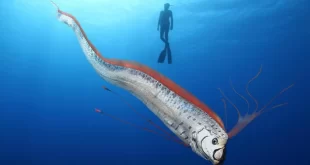How do smart technologies influence us in online settings, and should we worry about this? In this project you will analyse persuasion and manipulation in digital contexts as part of an interdisciplinary research team.
Smart technologies influence and ‘nudge’ human behaviour in ways that users are unaware of, for example when they use ChatGPT without knowing what sources the information is based on, or when they are not aware of the algorithms that underlie recommender systems used by, for example, YouTube or Amazon. In most cases, smart technologies are developed to make users’ life easier, by doing much of the information searching and filtering for the user. The potential downside of the ease of use of these technologies is, however, that citizens increasingly use information without reflecting on its accuracy or representativeness, because they are no longer required to think. This could represent a danger for information ecosystems and modern democracy, for example by making citizens vulnerable to filter bubbles, micro-targeting and fake news about societally relevant themes, and by making them lose sight of, and interest in, the distinction between what is real and what is not. They might assume, for example, that if nobody can discern the difference between verified and unverified information, this difference is trivial. In this project you will join forces with iHub, Radboud’s interdisciplinary hub for research on digitalisation and society and the Centre for Language Studies (CLS) to explore these, and related, questions. You will be part of an interdisciplinary team that seeks to better understand current information ecosystems and conceive of interventions to counter pernicious persuasion and manipulation in digital contexts.
In your postdoctoral project, you will be offered the opportunity to further develop and test your own line of research on manipulation and algorithmic persuasion. You will present the research outcomes at national and international conferences, and you will write articles for international journals.
Profiel
- You have a PhD in Linguistics and/or Communication Science, Computational Communication Science, or Computer Science.
- You have proven expertise in a relevant research domain, such as algorithmic persuasion, misinformation, online influence, recommender systems or filter bubbles, as evidenced by publications and conference presentations.
- You have an excellent research track record, as evidenced by publications, conference presentations and academic service.
- You have good writing skills in English and preferably also in Dutch.
- You have affinity with interdisciplinary research and you are able to communicate with experts from different disciplines.
Wij zijn
You will be a member of an interdisciplinary working group on persuasion and manipulation in digital contexts, a collaboration between the Centre for Language Studies (CLS) and iHub, which includes junior and senior researchers from both institutes. You will have a workplace at both institutes, to foster collaboration from the bottom up.
iHub’s mission is to better understand the effects of digitalisation on our society and to help steer digital transformations in ways where public values are central. We seek to do this by 1) bringing the Humanities, Computer Science and Social Sciences together to address challenges raised by digitalisation, 2) by focusing on the core values that are destabilised and need protection in digitalisation processes and 3) by adopting a critical and constructive approach. The Centre for Language Studies aims to achieve a deeper understanding of the cognitive and social processes underlying language systems, language processing, and language use. We aspire to optimise human communicative interaction. Our approach is to investigate language from single sounds to discourse, including modalities from speech and text to gestures, signs and images.
Both institutes aim to contribute to a sustainable and inclusive society. We therefore specifically seek candidates with diverse backgrounds, perspectives and skills, to bring added value to our study programmes and research profiles.
Radboud University
We are keen to meet critical thinkers who want to look closer at what really matters. People who, from their expertise, wish to contribute to a healthy, free world with equal opportunities for all. This ambition unites more than 24,000 students and 5,600 employees at Radboud University and requires even more talent, collaboration and lifelong learning. You have a part to play!
Wij bieden
- It concerns an employment for 0.8 – 1.0 FTE.
- The gross monthly salary amounts to a minimum of €4,332 and a maximum of €5,929 based on a 38-hour working week, depending on previous education and number of years of relevant work experience (salary scale 11).
- You will receive 8% holiday allowance and 8.3% end-of-year bonus.
- It concerns a temporary employment for 2 years.
- You will be able to use our Dual Career and Family Care Services. Our Dual Career and Family Care Officer can assist you with family-related support, help your partner or spouse prepare for the local labour market, provide customized support in their search for employment and help your family settle in Nijmegen.
- Working for us means getting extra days off. In case of full-time employment, you can choose between 30 or 41 days of annual leave instead of the legally allotted 20.
Aanvullende arbeidsvoorwaarden
Work and science require good employment practices. This is reflected in Radboud University’s primary and secondary employment conditions. You can make arrangements for the best possible work-life balance with flexible working hours, various leave arrangements and working from home. You are also able to compose part of your employment conditions yourself, for example, exchange income for extra leave days and receive a reimbursement for your sports subscription. And of course, we offer a good pension plan. You are given plenty of room and responsibility to develop your talents and realise your ambitions. Therefore, we provide various training and development schemes.
Meer weten?
For questions about the position, please contact Tamar Sharon, co-director iHub, at tamar.sharon@ru.nl. Alternatively, you can contact Enny Das, research director CLS, at enny.das@ru.nl.
Praktische informatie en solliciteren
You can apply until 4 October 2023, exclusively using the button below. Kindly address your application to Tamar Sharon. Please fill in the application form and attach the following documents:
- Your CV, including the contact details of two academic references.
- A brief research proposal in which you describe your ideas for this PhD. The proposal should be structured as follows: theoretical background, proposed methods and references (max. 500 words excluding references). Please make sure that your proposal is relevant to both CLS and iHub. You do not need to contact potential supervisors at this stage.
The first round of interviews will take place on Thursday 19 October. The second round of interviews will take place on Thursday 26 October. You would preferably begin employment on 1 January 2024.
We can imagine you’re curious about our application procedure. It offers a rough outline of what you can expect during the application process, how we handle your personal data and how we deal with internal and external candidates.
Reageer uiterlijk op 04 oktober 2023
Job Features
| Job Category | Postdoctoral |
 Etudes Non Stop Study Non Stop
Etudes Non Stop Study Non Stop



